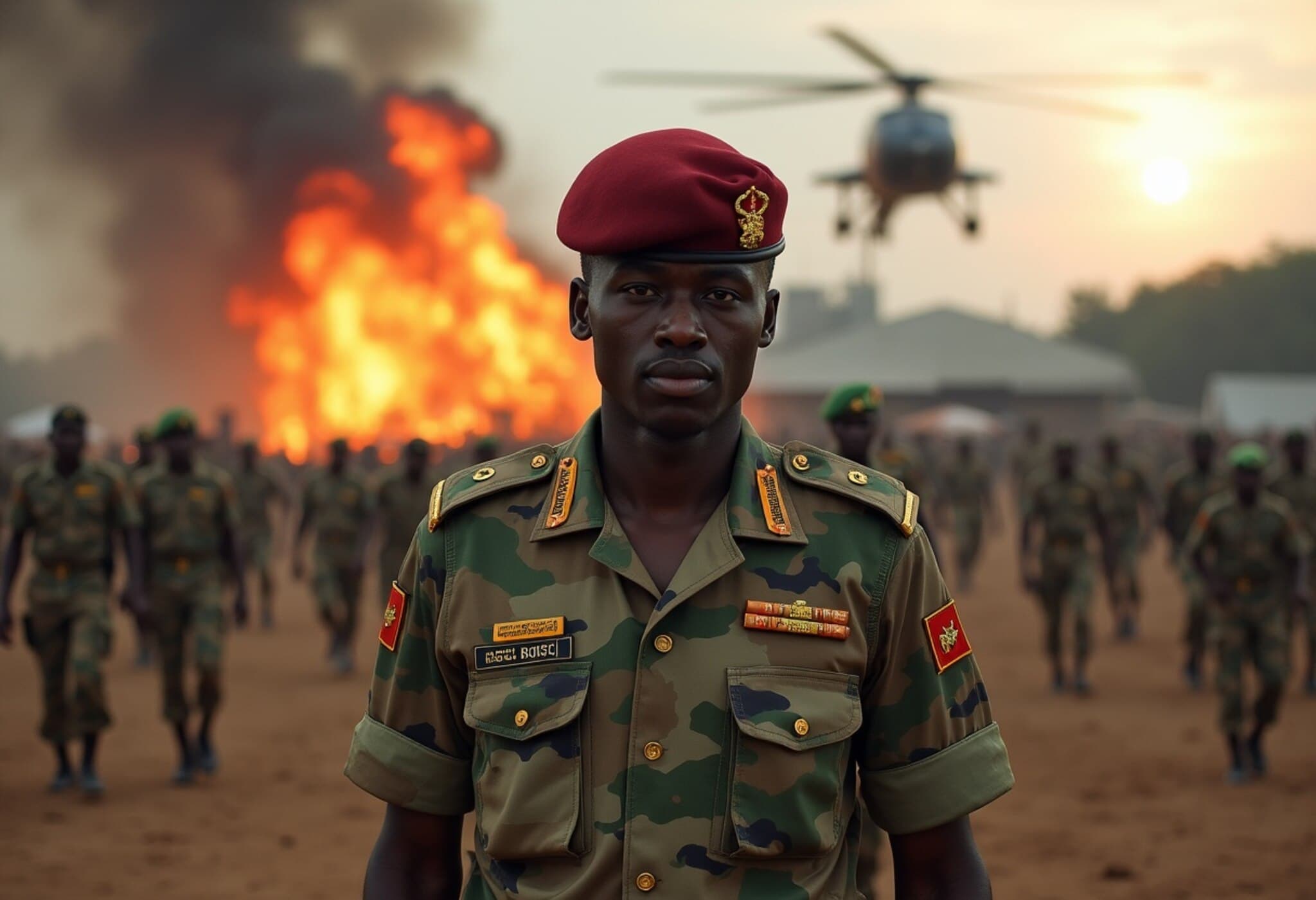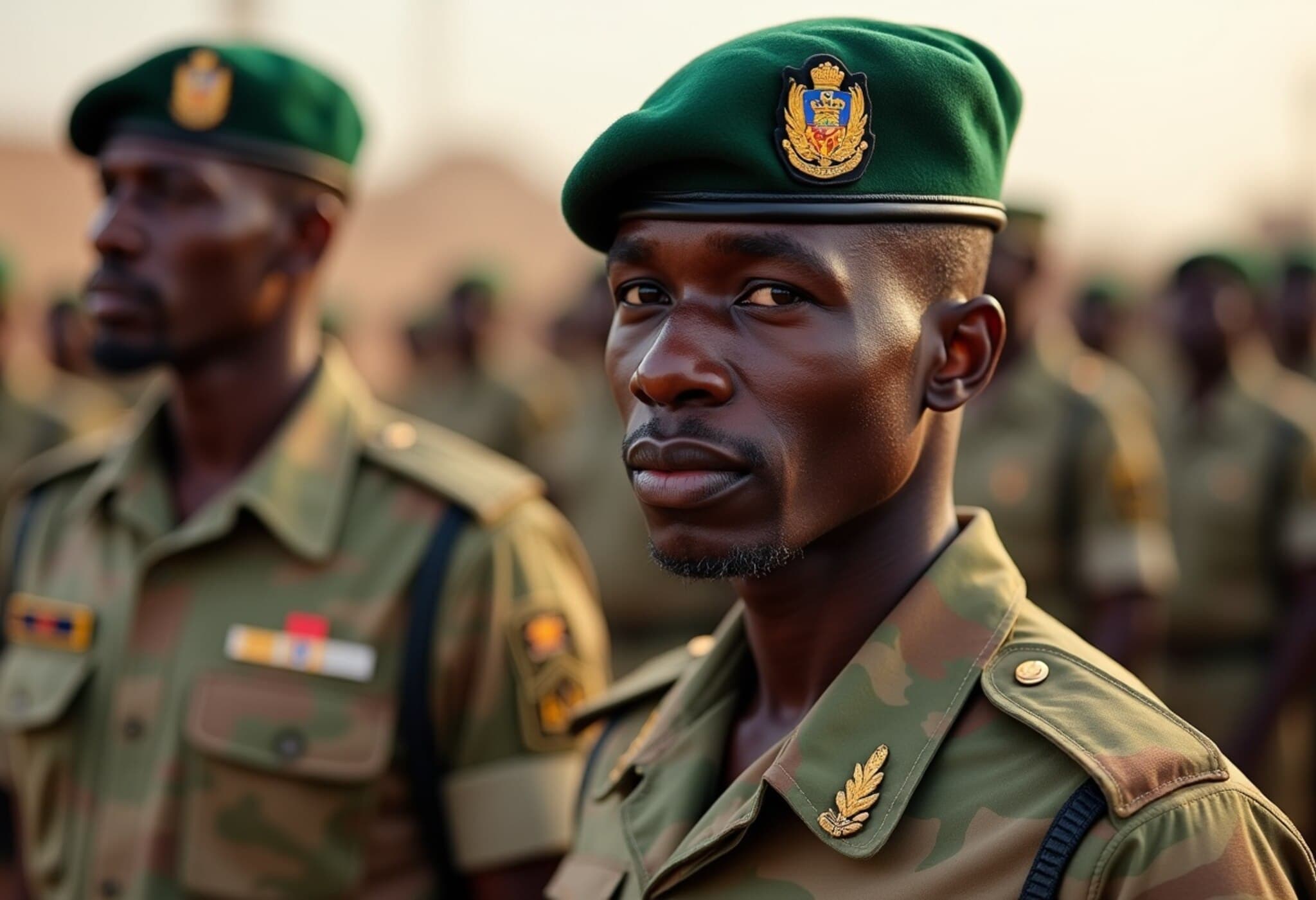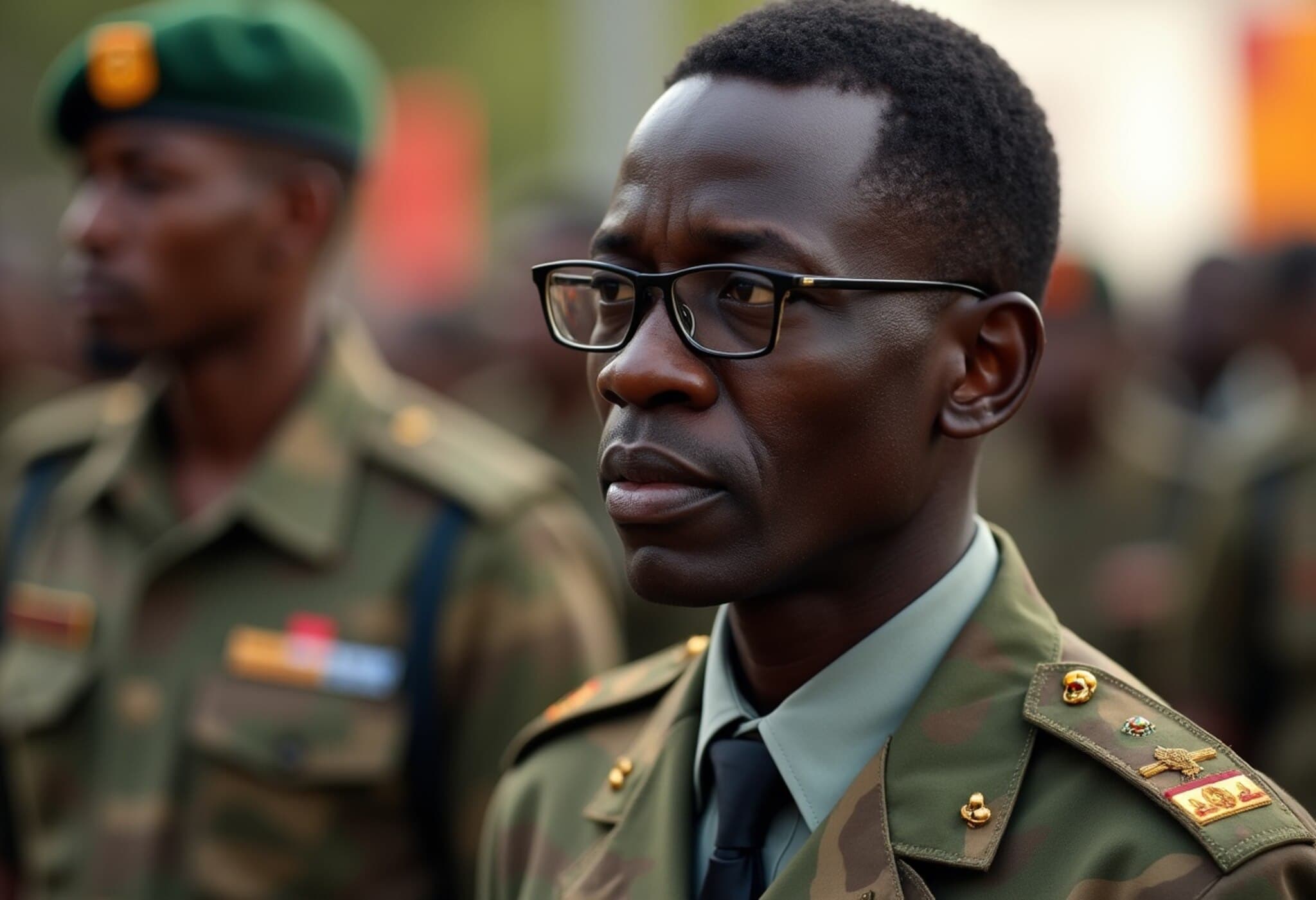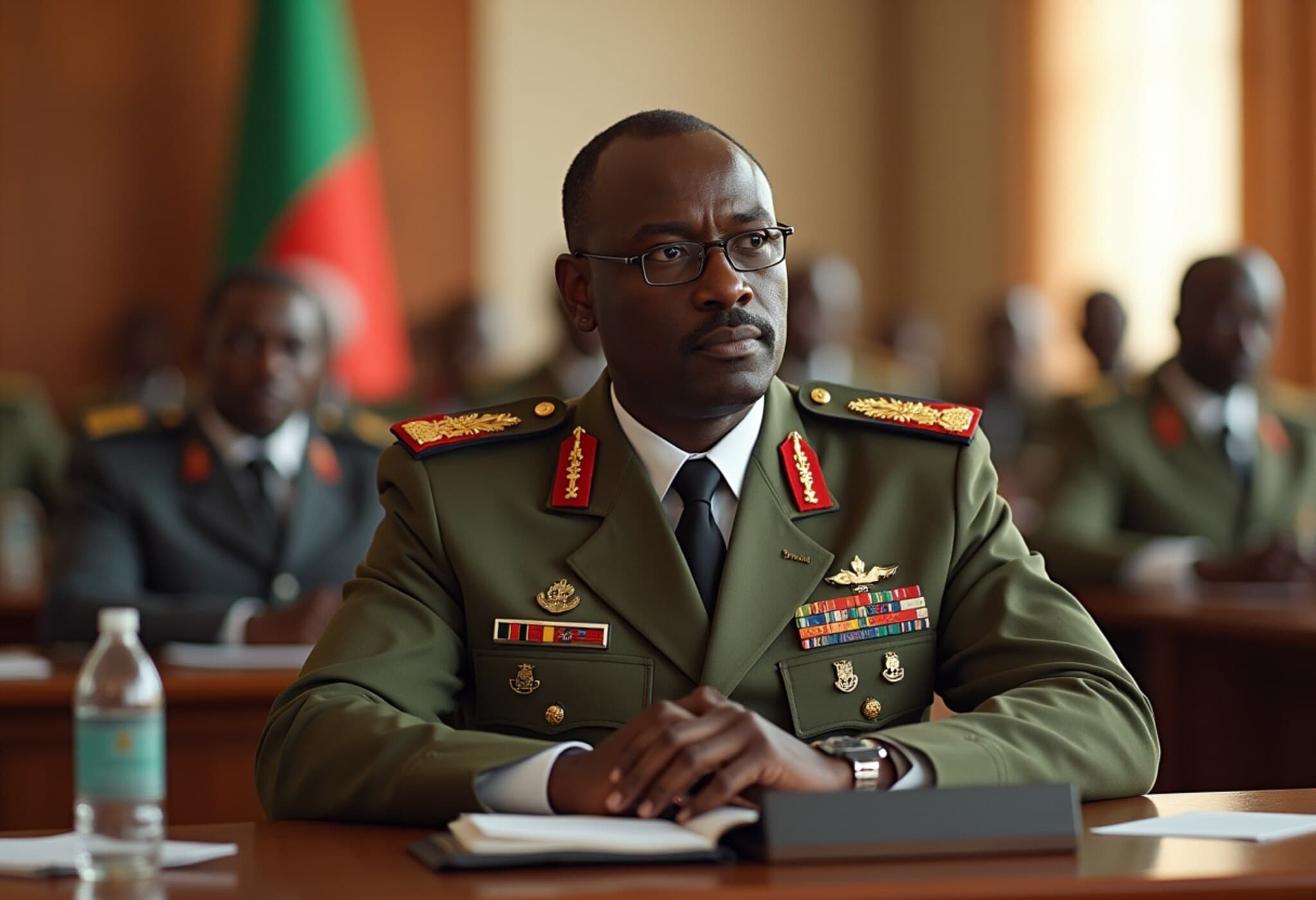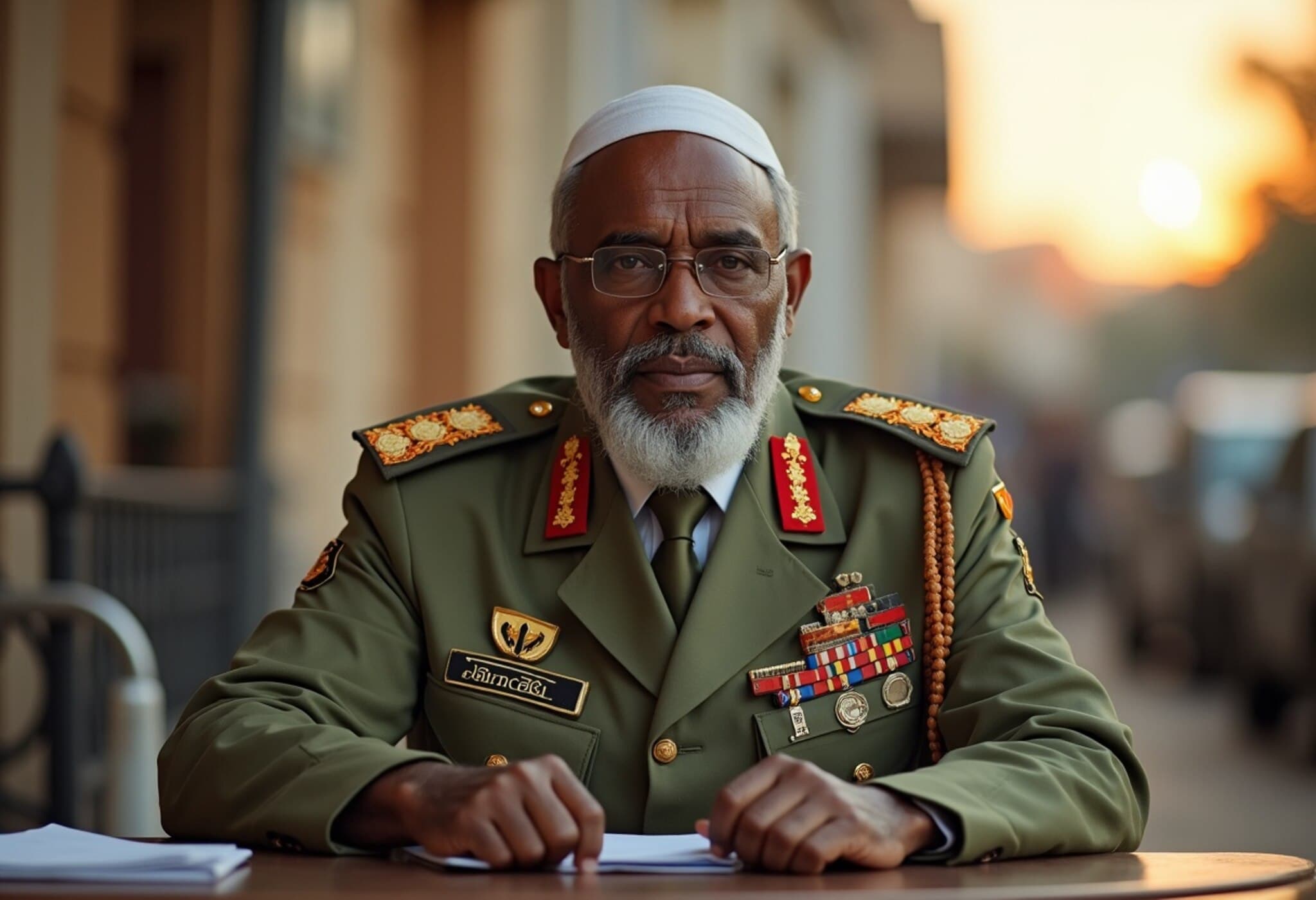Helicopter Crash Claims Lives of Ghana's Key Ministers
In a heartbreaking development on Wednesday, Ghana’s Defence Minister Edward Omane Boamah and Environment Minister Ibrahim Murtala Muhammed were confirmed dead following a helicopter crash that also claimed the lives of six others. The incident, announced by the presidency, has plunged the nation into mourning and raised concerns about the loss of prominent leaders at a critical moment for Ghana’s security and environmental policy.
Details of the Crash and Immediate Reactions
Earlier on Wednesday, the Ghana Armed Forces reported that an air force helicopter carrying eight individuals—comprising three crew members and five passengers—went off radar shortly after departing from Accra en route to Obuasi. Ghanaian media later broadcast footage of the wreckage engulfed in flames within the dense forested terrain.
Among those aboard were Edward Omane Boamah, the newly appointed Defence Minister since President John Mahama’s inauguration in January, and Ibrahim Murtala Muhammed, who managed the Environment, Science, and Technology portfolio. Other victims included Alhaji Muniru Mohammed, Deputy National Security Coordinator and former Agriculture Minister, as well as Samuel Sarpong, vice chairman of the ruling National Democratic Congress.
President Mahama, visibly shaken by the tragic news, immediately canceled all official engagements, while Chief of Staff Julius Debrah extended heartfelt condolences to the grieving families and the nation.
The Strategic Impact: Security and Environmental Challenges Amid Loss
Minister Boamah had been steering Ghana’s defence strategy at a time when jihadist activity along the volatile northern border with Burkina Faso has escalated. Though Ghana has, until now, managed to avoid direct attacks unlike its neighbors Togo and Benin, security experts have increasingly warned of rising weapons smuggling and militant crossings into Ghanaian territory.
Boamah’s role involved delicate diplomacy, including leading delegations to Ouagadougou as Ghana seeks collaboration with the Sahel countries amidst complex geopolitical shifts marked by military juntas breaking from ECOWAS norms.
Meanwhile, Minister Muhammed was at the frontline of combatting the rampant ‘galamsey’—illegal and informal gold mining—that has devastated Ghana’s farmlands and water systems. This environmental crisis threatens not only local ecosystems but also the vital cocoa industry underpinning Ghana’s economy. His leadership had been pivotal in the government’s recent crackdown efforts, including instituting the Ghana Gold Board and restricting foreign participation in gold trading.
Who Were the Ministers?
- Edward Omane Boamah: A medical doctor turned politician, with prior experience as Communications Minister and Deputy Environment Minister.
- Ibrahim Murtala Muhammed: Veteran politician dedicated to environmental science and anti-illegal mining efforts.
Broader Implications and Underreported Narratives
This tragedy underscores Ghana’s vulnerability to sudden shocks as it navigates a tense security landscape and severe environmental challenges. The loss of these ministers raises pressing questions:
- How will Ghana sustain its counter-jihadist diplomacy and border security without Boamah’s leadership?
- What are the next steps in combating illegal mining and related environmental degradation after Muhammed’s passing?
- Can the government accelerate efforts in institutional resilience to prevent operational gaps amid such unforeseen losses?
Experts emphasize the critical need for transparent investigations to determine the cause of the crash, ensuring aviation safety standards are rigorously applied to prevent future tragedies.
Community Mourning and National Reflection
The mood across Ghana has been somber, with the nation paying respects as flags fly at half-mast. Ghanaian Education Minister Haruna Iddrisu captured the emotional gravity, describing President Mahama as "down, down emotionally".
Beyond mourning, this event potentially galvanizes public awareness on the threats facing Ghana—from illicit arms flows and militant activity to environmental exploitation—highlighting the interconnectedness of governance, security, and sustainability.
Editor’s Note
This tragedy calls for a renewed focus on leadership stability in volatile regions and robust strategies to safeguard national security and environmental health. These twin challenges define Ghana’s current landscape, a crossroads between hope and uncertainty. As the nation grieves, thoughtful analysis and resilient policy responses will be essential in honoring the legacy of these fallen leaders and in steering Ghana towards a secure and sustainable future.



